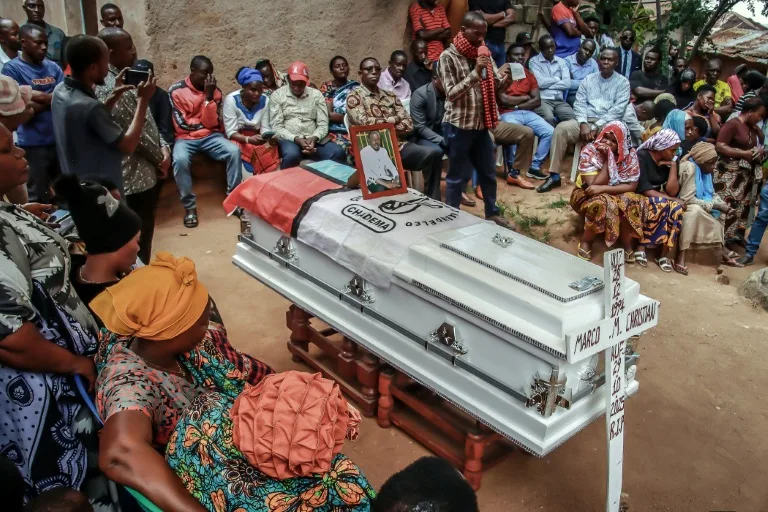
Tanzanian human rights organizations have strongly condemned widespread reports of reprisal killings of civilians following the country’s contested October 29 election. Opposition parties claim that these violent crackdowns may have killed hundreds, with many attacks reportedly occurring inside homes and communities.
Post-Election Violence Rocks Tanzania
President Samia Suluhu Hassan officially secured re-election with 98 percent of the vote, according to the Tanzania Electoral Commission. However, opposition parties, including the Chadema party, which was barred from participating in the election, have denounced the vote as a “sham,” claiming widespread electoral manipulation and intimidation.
On election day, violent protests erupted nationwide, leaving scores of people dead and many more injured. In the wake of the unrest, a six-day internet shutdown restricted the flow of verified information, making it difficult to assess the full scale of human rights violations.
Human Rights Groups Report Reprisal Killings
In a joint statement released Friday, the Legal and Human Rights Centre (LHRC), along with six other NGOs, reported the excessive use of force against unarmed civilians.
“Families have been left traumatized, and children have witnessed violence against their parents,” the statement read.
The NGOs highlighted that young people were particularly targeted, often unexpectedly, and many were arrested, with some remaining in detention without bail. The groups warned that the full extent of human rights abuses in Tanzania has yet to be uncovered, criticizing government-imposed media restrictions and internet blackouts.
Opposition Leaders Describe Widespread Casualties
Amos Ntobi, secretary of the opposition Chadema party, reported devastating losses in the northern Mwanza region.
“We saw people being shot in broad daylight. There were bodies all over the streets—some killed instantly, others left badly wounded,” Ntobi said.
He noted that at least nine funerals had taken place in his region, including the deaths of two children aged nine and 11, killed near their homes or while running errands. Several local opposition leaders remain unaccounted for amid the ongoing crackdown.
Suppression of Opposition Preceded the Poll
In the months leading up to the election, Tanzanian authorities took extensive measures to suppress opposition participation. Many opposition figures were jailed or barred from contesting, leaving voters with no meaningful choice.
Initial reports by African election observers indicated that citizens were unable to express their democratic will, citing censorship, intimidation, and clear signs of election manipulation. Observers from the African Union also stated that the electoral process was fundamentally compromised.
International Concerns About Human Rights in Tanzania
The surge of post-election violence and reports of targeted civilian killings have drawn international scrutiny. Human rights organizations warn that without accountability, such reprisal killings and mass detentions could further destabilize Tanzania’s political landscape.
Observers continue to call on the international community to monitor developments closely and provide support to civil society groups documenting abuses, as many families remain traumatized and vulnerable.
Conclusion
The situation in Tanzania highlights the challenges facing emerging democracies in Africa, particularly when electoral processes are compromised and human rights are suppressed. Reprisal killings, arbitrary detentions, and censorship not only undermine public trust but also raise urgent calls for accountability and international intervention.


Leave a Reply